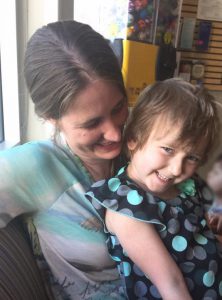Learn about PPB/DICER1-related cancers
We encourage interested individuals to learn more about pleuropulmonary blastoma (PPB), Sertoli-Leydig cell tumor (SLCT) and each of the other DICER1-related cancers.

When to test for DICER1
Individuals with one major criteria or two minor criteria are encouraged to consider DICER1 testing. Use the chart below to determine criteria. Please note that some of these conditions may also be seen sporadically (not in relation to an identifiable gene variation) or in association with other cancer predisposition. Generally testing is also recommended for individuals with a close family history of germline pathogenic DICER1 variation.
Genetic counseling is advised for all individuals considering genetic testing.
- Individuals with PPB (all types)
- Lung cyst(s) in childhood, especially if multi-septated, multiple or bilateral
- Thoracic embryonal rhabdomyosarcoma*
- Cystic nephroma
- Genitourinary sarcomas including undifferentiated sarcoma*
- Ovarian Sertoli-Leydig cell tumor
- Gynandroblastoma
- Uterine cervical or ovarian embryonal rhabdomyosarcoma*
- Genitourinary/gynecologic neuroendocrine tumors
- Multinodular goiter or thyroid cancer in 2 or more 1st degree relatives or in an index patient with a family history consistent with DICER1 variation*
- Childhood onset multinodular goiter* or differentiated thyroid cancer*
- Ciliary body medulloepithelioma
- Nasal chondromesenchymal hamartoma
- Pineoblastoma
- Pituitary blastoma
Please note: These conditions may be seen with other cancer predisposition and testing for other conditions should also be considered. When considering genetic testing, genetic counseling is advised.
Published guidelines are now available for individuals with a germline pathogenic DICER1 variation (also known as DICER1 mutation). For more information and to receive a copy of these guidelines, please contact the Registry.
Genetics of PPB, SLCT and other DICER1-related cancers
Most DICER1-related cancers, including PPB and SLCT, seem to follow the “two hit” hypothesis. In some situations, an individual is born with a predisposing germline pathogenic variant which may have been inherited from a parent. The “second hit” appears to happen only in the tumor tissue and occurs in a very specific part of the gene, region called the RNase IIIb domain or “hotspot.” In some instances, both changes are seen only in the tumor and there is no detectable variation in the germline. Please see germline vs. somatic testing below for more information on this. The likelihood of finding a germline pathogenic variant in someone with a DICER1-related cancer varies by tumor type.
Common questions include those regarding genetic testing. One important distinction is the difference between somatic and germline testing.
When someone has a suspected DICER1-related cancer such as PPB or SLCT, it may be helpful to test the tumor to see if there are changes in the DICER1 gene within the tumor.
Connect with us
The PPB/DICER1 Registry has hosted six family meetings to bring together families and researchers from all over the world to connect with one another and to learn more about these rare cancers and DICER1 surveillance. More information on past and upcoming family meetings including a link to past speaker presentations is available. We invite interested individuals to connect with the Registry by phone or email and/or to follow the Registry on social media. Find us on Facebook, Instagram, and LinkedIn.
The Registry also hosts annual scientific symposia to bring together researchers and treating physicians to share information and collaboratively work together to find cures for these rare cancers.
Consider enrolling in the Registry
Much progress has been made and at the same time, more work is needed to find a cure for all children and adults with PPB, SLCT and other DICER1-related cancers. Interested individuals are invited to consider participation in the International PPB/DICER1 Registry.
For more information on enrollment which includes sharing of information and optional tumor tissue or blood sample collection, please contact us.